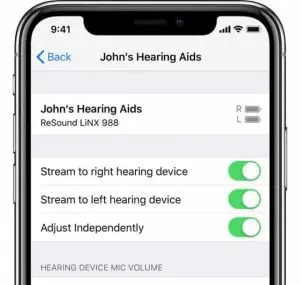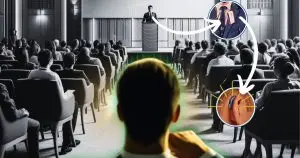The impact of music on aging and the successful aging of musicians: Preservation of sensorimotor regions aids audiovisual speech-in-noise perception.
Written by: Lei Zhang, Xiuyi Wang, Claude Alain, Yi, Du
Sciences Advances
Research article: April 26, 2023
Reviewed by Karen M.
A myriad of cognitive deficits are associated with aging. According to the revised model of the scaffolding theory of aging and cognition, both aging and life course experience influences brain structure and function, as well as the development of compensatory scaffolding. Read on to learn more about the impact of music on aging.
For example, as we grow older and go through different life experiences, they can have an impact on how our brain is structured and functions. Aging and the various things we encounter in life can influence how our brain develops alternative connections to compensate for any changes or declines that may occur. This process is known as compensatory scaffolding, where the brain builds new pathways to help support its functioning. In simpler terms, both getting older and the things we experience in life can affect how our brain works and how it adapts to changes by creating new connections.
A moment to define what the authors refer to as the “scaffolding theory of aging and cognition”.
Park and Reuter-Lorenz proposed the scaffolding theory of aging and cognition in 2009. Their theory states that the brain adapts to neural atrophy (dying of brain cells) by building alternative
connections, referred to as scaffolding. So while aging is associated with reductions in cortical thickness, white-matter integrity, and functional engagement of certain areas of the brain, there are compensatory increases in frontal functional engagement.
For example, As we age, certain changes occur in our brain. These changes include a decrease in the thickness of the outer layer of the brain called the cortex, a decline in the integrity of the white matter (the part of the brain responsible for transmitting signals), and less active engagement of specific brain areas. However, our brain has a clever way of compensating for these changes. It increases its activity in the frontal region, which is responsible for important functions like decision-making and problem-solving. In simpler terms, although aging may cause some parts of the brain to decline, other areas step up their activity to make up for it.
This compensatory scaffolding could shore up declining structures whose functioning has become noisy, inefficient, or both. Positive lifestyle choices, like long-term musical training, contributes to neural resource enrichment, which could mitigate the negative impacts of aging.
One of the most prevalent cognitive defects is difficulty in understanding speech in noisy environments.
Hears to U also acknowledges that hearing in noise is one of the most common problems that bring patients to seek help from a hearing care professional. We also love to work with musicians and know they sometimes need more specialized care.
What does this mean for musicians? The impact of music on aging does play a role in understanding speech in noise. Anatomical overlap in the brain networks that process music and speech drives the advantage musicians have in speech processing. Compared to older non-musicians, older musicians have enhanced central auditory processing functions and preserved cognitive abilities.
This study used functional MRI to test three hypotheses:
1. Older musicians show preserved speech representation patterns that are similar to young adults
2. Older musicians recruit additional sensory and frontal speech motor regions as a compensation
3. Older musicians deactivate default mode network regions to a greater extent as compensation.
There were 25 older musicians, 25 older non-musicians, and 24 younger non-musicians that identified syllables in noise under three signal-to-noise ratios with as is normal visual lip movements inside the MRI scanner. As the researchers hypothesized, older non-musicians performed worse than younger non-musicians, and older musicians performed better than older non-musicians plus equally well as the younger non-musicians. Showing that, in fact, the impact of music on aging does make a difference.
This study showed that being a musician for a long time helps reduce the difficulties older people may have in understanding speech in noisy situations. This is achieved by preserving the brain’s functionality and making up for any deficits through compensation. If you are a musician reading this, congratulations, especially if you have kept up with your music. If you’re not a musician, don’t worry! Other studies suggest brain exercises that you can do to keep your mind sharp. Learning to play a musical instrument is one of those exercises. Let’s create more music in the world!
Hears Hearing & Hearables enjoys presenting current research to our readers and our customers as well. I hope you enjoyed it; we look forward to more research as well.
Cheers!








